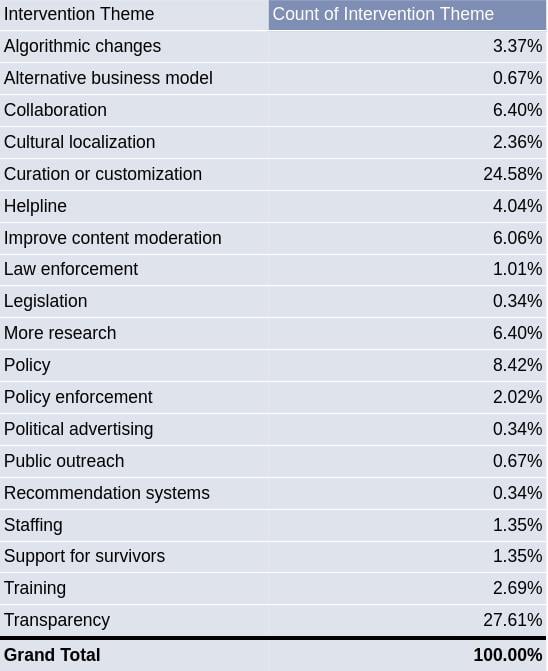For media inquiries, please contact Paulina Chavez [email protected].
Kaleigh Schwalbe and Theo Skeadas
Technology companies with social media platforms have the potential to be a powerful ally in civil society’s work to build an open, free, and democratic Internet. They have the ability to provide safe and accessible mechanisms for all people to participate in democracy, especially in closed information spaces. Continued, active engagement with technology companies is required to properly convey the stories and experiences of democratic activists. The recent dismantling of Trust and Safety teams at technology companies and disappearing safeguards rather than expanded protections result from companies articulating cost-cutting measures as driving motivation. However, fostering a safer environment for women, in all of their diversity, to engage online is actually a revenue driver.
Online violence against women in politics and public life (OVAW-P) poses a deepening challenge to democracy, serving as a key tool of illiberalism and democratic backsliding across the globe. OVAW-P encompasses all forms of aggression, coercion, and intimidation seeking to exclude women from politics simply because they are women. This online behavior seeks to achieve political outcomes: targeting individual women to harm them or drive them out of public life, while also sending a message that women in general should not be involved in politics. This online violence has a chilling effect on the political ambitions and engagement of women and girls, decreasing their presence and agency in politics and public life. Stopping gender-based attacks online is a solvable problem, and it is the fastest and clearest investment toward building an internet that enables everyone to be politically engaged.
To address this issue, the National Democratic Institute developed a set of solutions-based interventions for technology platforms to end online violence against women in politics and public life. The interventions were developed in collaboration with a global network of women survivors. In order to more successfully advocate for the implementation of these interventions, research and advocacy efforts are needed to demonstrate the power and profitability of providing a safe space for women to politically engage online.
Analysis of Recommendations by Civil Society Organizations for Technology Platforms
The National Democratic Institute recently reviewed all major recommendations by civil society organizations for technology platforms around online violence against women. The team compiled a list of 563 recommendations for diverse stakeholder audiences across 24 civil society organization (CSO)-generated reports and discovered that among the 297 platform-focused interventions, Transparency is the most recurring intervention theme, at 28%, that Customization is the second most recurring intervention theme, at 25%, and that collectively, Transparency and Transparency-related intervention themes account for over 56% of all themes. After Transparency and Customization the next most frequent themes are: Policy (8%), Collaboration (6%), More research (6%), and Improve content moderation (6%).
Further, within Transparency, Reporting is the most recurring sub-theme, at 25%, Information-sharing is the second most recurring sub-theme, at 20%, and Appeals is the final most recurring sub-theme within Transparency, at 10%. Within Customization, Safety tools is the most recurring sub-theme within Customization, at 17%, and Safety by design is the second most recurring sub-theme within Customization, at 10%.
Transparency-related interventions share data from technology platforms with the broader community on the scale of gendered abuse that is reported on the platform and data on how platforms are responding to the reports. This also includes transparency and data sharing around the appeals process. An example includes measuring the prevalence of gendered abuse and sharing data through corporate transparency reports.
Customization-related interventions refer to the process of selecting, organizing, and presenting content or information to users in a meaningful way, enabling user exposure to certain online content beyond that occurring from a service's basic features. This includes safety tools, safety by design, filtering, navigation, notifications, and settings. Two examples include (1) building account security systems that enable survivors of abuse, who are hacked and locked out, to recover their accounts and (2) build shields that enable users to proactively filter abusive content (across feeds, threads, comments, replies, direct messages, etc.) and quarantine it in a dashboard, where they can review and address it with the help of trusted allies.
Policy-related interventions refer to the rules that govern a technology platform or service. Policies cover issues including platform integrity and authenticity, misinformation, child sexual abuse material, violent content, and hateful conduct. Two examples include (1) that policies and guidelines should be easily accessible and available in local languages and (2) clearly articulating policies that prohibit content that harasses or abuses someone on the basis of gender or race.
Business cases for technology platforms to provide safe spaces for women to politically engage online
As part of this study, NDI met with representatives from multiple technology platforms to discuss the most compelling reasons for why companies should invest more in providing safe spaces for women to express their political opinions online.
Implementing the most recommended interventions from civil society organizations can help technology platforms to mitigate the risk of online harassment and abuse, and ensure that women are able to participate safely in political discussions. These interventions may include measures such as content moderation, reporting mechanisms, and user education programs. The business case for technology platforms to provide safe spaces for women to politically engage online by implementing the most recommended interventions from CSOs include:
-
Broader and more diverse user base: Creating a safe and inclusive online environment can attract a more diverse user base, which can lead to increased revenue and growth opportunities for the company.
-
More engaged community and more revenue: Platforms that prioritize the safety and inclusion of all users, including women, are likely to foster a more positive and engaged community. This can ultimately lead to increased user engagement and monetization opportunities for the platform.
-
Enhanced brand reputation: Companies that actively promote a safe and inclusive online environment for all users, including women, are likely to be perceived as responsible and ethical. This positive brand image can help attract new users and retain existing ones, as well as appeal to advertisers and investors.
-
Mitigating legal and regulatory risks: By proactively addressing online harassment and abuse, platforms can reduce their exposure to legal and regulatory risks. Governments around the world are increasingly enacting laws to combat online abuse, and failure to comply can result in fines, lawsuits, or even platform bans. Implementing recommended interventions can help platforms stay ahead of potential legal issues.
-
Corporate social responsibility: Demonstrating a commitment to social responsibility can help technology platforms attract investors and partners who prioritize ethical business practices. By implementing CSO-recommended interventions, platforms can showcase their dedication to improving the online environment and promoting gender equality.
-
New revenue streams: By fostering a safer online space for women, platforms may be able to tap into new revenue streams, such as partnerships with organizations focused on women's empowerment, political participation, or gender equality. These partnerships can lead to sponsored content, advertising revenue, or other monetization opportunities.
-
Innovation and market differentiation: By being at the forefront of creating safe spaces for women in the online political sphere, technology platforms can differentiate themselves from competitors and establish a unique selling point. This can help them gain market share and foster long-term loyalty from users who value the platform's commitment to inclusivity and safety.
-
Enhanced customer trust: By demonstrating a commitment to creating a safe online environment, companies can build trust with their users. This trust can lead to increased customer loyalty and higher retention rates.
-
Positive work culture: Addressing online violence against women contributes to creating an inclusive work culture. A diverse and inclusive work environment has been linked to increased creativity, innovation, and productivity, which can benefit the company's bottom line.
-
Promoting gender equality and empowerment: Creating safe spaces for women to participate in political discourse is essential for promoting gender equality and empowerment. NDI research shows that women are often subjected to harassment and abuse when they engage in online political discussions, which can discourage them from participating and perpetuate gender disparities in political representation and decision-making.
-
Advancing the democratic process: Ensuring that women are able to participate fully and safely in online political discourse is also critical for the democratic process. Women's perspectives and experiences are essential for creating inclusive policies and addressing issues that affect them and their communities. When women are prevented from participating in political discussions due to online harassment and abuse, their voices are silenced, and important issues may be overlooked.
Ultimately, creating safe spaces for women to participate in online political discussions and implementing interventions recommended by civil society organizations can benefit both women and technology platforms themselves. By promoting gender equality and democratic participation, these measures can help to create a more inclusive and engaged online community.


